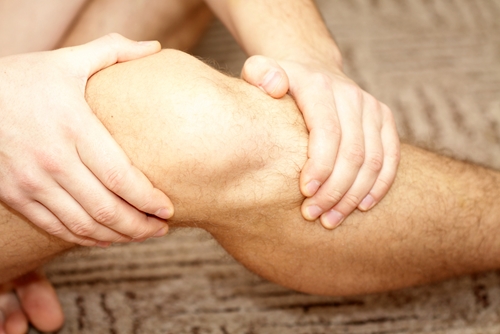Nonsurgical treatment may ease pain from knee osteoarthritis
While knee osteoarthritis can cause serious mobility issues for those with the condition, recovery from corrective surgery can be just as uncomfortable. Even noninvasive surgical methods such as an arthroscopic operation can cause swelling of the knee, requires regular dressing of the incision site and can keep the patient from driving for up to three weeks after the procedure. In addition to these surgical side effects, some patients may also require extensive rehabilitation regimens to build the muscles back up in their knees.
However, according to a recent study conducted by researchers at the University of Wisconsin School of Medicine and Public Health and published in The Journal of Alternative and Complementary Medicine, a nonsurgical program of measured injections may be effective at improving pain management, mobility and stiffness in patients with mild to severe knee osteoarthritis. With significant improvements in patient-reported conditions, the injection plan may be a replacement for those looking to cut down on the recovery time of more invasive procedures.
Analyzing an injection plan
David Rabago, M.D., lead author of the study, gathered 38 adults who had indicated at least three consecutive months of pain due to knee osteoarthritis. These adults had been in the initial participant pool of a prior injection therapy study, but had been selected into the control group, ruled ineligible for further investigation or declined to participate.
The 38 adults were injected with a solution of hypertonic dextrose and morrhuate sodium, a process the study named "prolotherapy." These sessions occurred at one, five and nine weeks, with supplemental injections of 15 percent dextrose and 5 percent morrhuate sodium as needed at weeks 13 and 17.
The study gauged patient response to the prolotherapy program based on the Western Ontario McMaster University Osteoarthritis Index. The study split the patients' responses into Prior-Decline, Prior-Control and Prior-Ineligible groups to more accurately measure responses.
The Prior-Decline and Prior-Ineligible groups reported the most significant improvement based on the WOMAC index, with a 19.4 point or 42.9 percent increase in pain management. The Prior-Control group indicated a 12.4 point or 19.5 percent jump.
With results seen after as few as three injections, the prolotherapy program may bring relief to the 4.6 million adults aged 60 years or older in the U.S. who have osteoarthritis. A treatment program that requires no invasive surgery and brings with it relatively no recovery period may be just what some patients have been waiting for.



